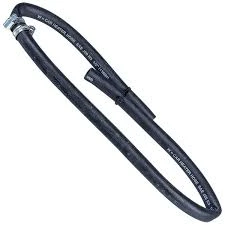Flexible Hoses for Refrigerant Applications and Efficient Cooling Systems
Nov . 08, 2024 22:25 Back to list
Flexible Hoses for Refrigerant Applications and Efficient Cooling Systems
The Importance of Flexible Hoses for Refrigerants in HVAC Systems
In the realm of heating, ventilation, and air conditioning (HVAC) systems, the use of flexible hoses for refrigerants is a critical consideration that significantly impacts the efficiency, performance, and longevity of these systems. Flexible hoses are designed to handle the movement and vibration inherent in HVAC systems, making them invaluable components in the transportation of refrigerants, which are essential for cooling and heating processes. This article delves into the key attributes, applications, and advantages of using flexible hoses for refrigerants.
Understanding Flexible Hoses
Flexible hoses are tubes made from flexible materials that allow for easy routing and installation. These hoses are typically constructed from a combination of rubber, plastic, and metal armor, which afford them the durability, flexibility, and resistance to thermal changes that are necessary for handling refrigerants. Commonly used refrigerants include R-410A, R-22, and R-134A, each with unique chemical properties that necessitate specific materials and designs to ensure safe and efficient transportation.
Applications of Flexible Hoses
Flexible hoses for refrigerants are used in various applications. In residential and commercial HVAC systems, they connect the compressor, condenser, and evaporator coils, facilitating the transfer of refrigerant. Such connections are essential for maintaining the pressure and flow of the refrigerant as it cycles through the system. Additionally, these hoses are utilized in refrigeration units, dehumidifiers, and chillers, where flexibility allows for installations in tight spaces or complex configurations.
Advantages of Using Flexible Hoses
flexible hose for refrigerant

1. Flexibility and Ease of Installation One of the primary benefits of flexible hoses is their ability to bend and twist as needed, making them exceptionally easy to install. This flexibility reduces the need for multiple fittings and joints, minimizing potential leak points and facilitating quicker installation times.
2. Vibration Resistance HVAC systems often generate vibrations during operation, which can cause stress and damage to rigid piping. Flexible hoses absorb and dampen these vibrations, extending the life of the entire system and enhancing operational reliability.
3. Thermal Expansion and Contraction Temperature changes can lead to expansion and contraction of materials used in HVAC systems. Flexible hoses accommodate these changes without cracking or breaking, ensuring a long-lasting connection that adapts to varying operational conditions.
4. Chemical Compatibility The materials used in flexible hoses are specifically designed to resist degradation from refrigerants and other chemicals. This chemical compatibility is crucial for maintaining the integrity of the hose and preventing leakage, which can be harmful to both the environment and system performance.
5. Cost-Effectiveness While the initial investment in flexible hoses may be slightly higher than standard rigid piping, the overall cost savings in terms of installation time, reduced maintenance, and improved system efficiency often outweigh the upfront costs. Moreover, the reduced risk of refrigerant leaks translates to long-term savings on refrigerant replenishment.
Conclusion
In conclusion, flexible hoses for refrigerants play a vital role in the efficiency and functionality of HVAC systems. Their unique properties offer unparalleled benefits, including ease of installation, vibration resistance, and adaptability to thermal changes. As technology advances and the demand for efficient HVAC solutions increases, the importance of high-quality flexible hoses will continue to grow. By selecting the appropriate flexible hoses for specific refrigerant applications, engineers and technicians can enhance the performance of HVAC systems, improve energy efficiency, and contribute to a more sustainable future. As businesses and homeowners alike seek to optimize their HVAC systems, investing in flexible hoses designed for refrigerant use is a wise choice that pays dividends in reliability and efficiency.
